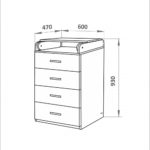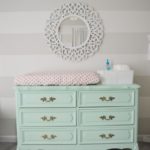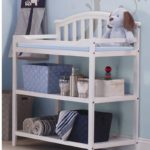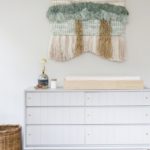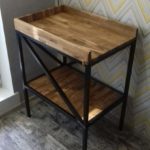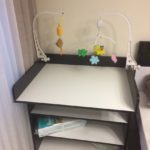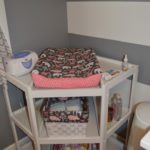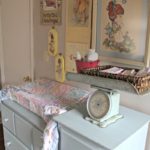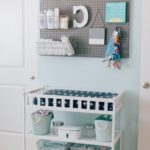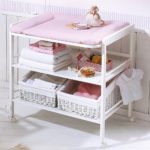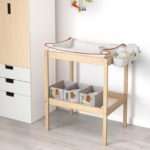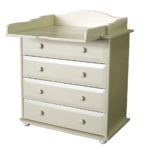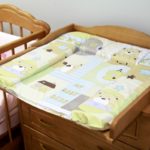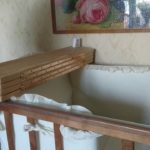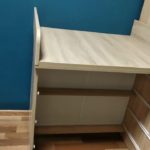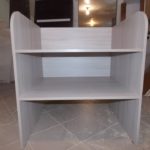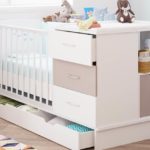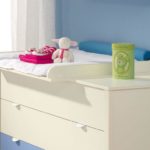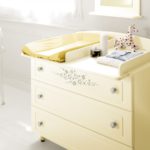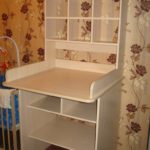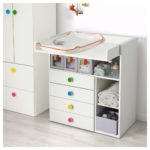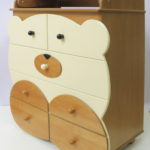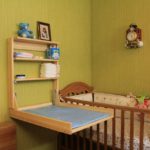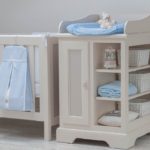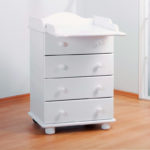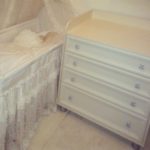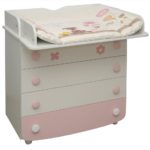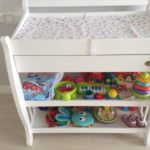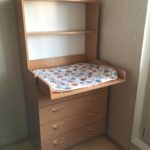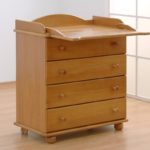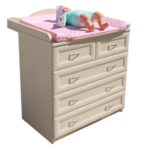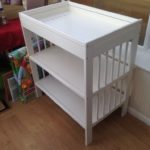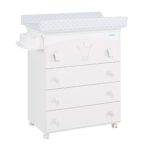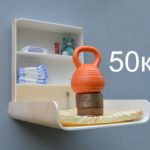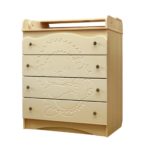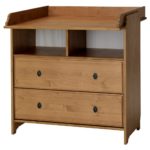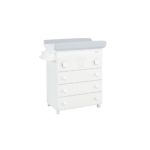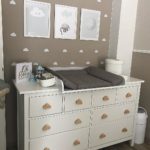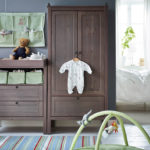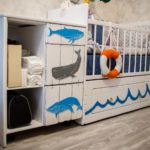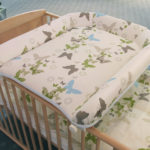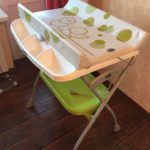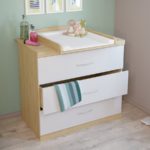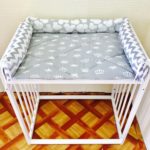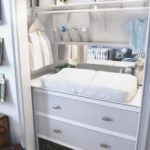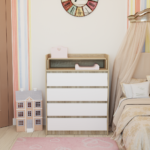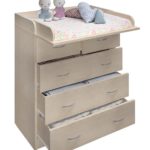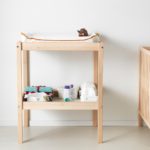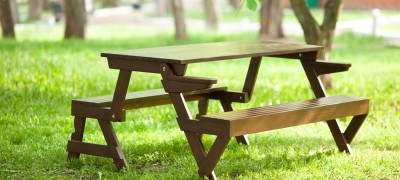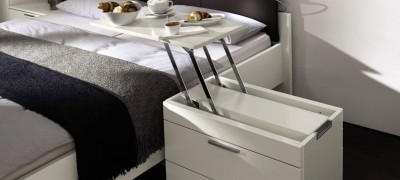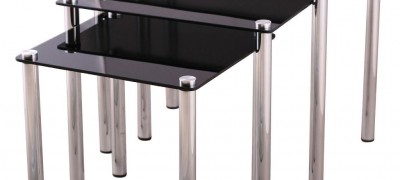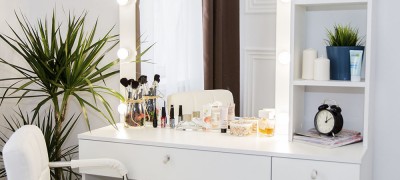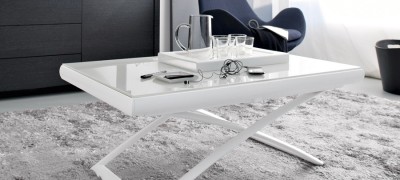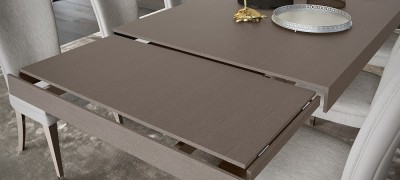How to make a changing table with your own hands
Any woman who is preparing to become a mother thinks about what needs to be purchased for caring for a baby. There is a list of must-have items that you simply cannot do without, for example, a stroller, a cot, a bath, etc. However, nowadays there are many different things that make it easier to care for a child. One of them is undoubtedly the changing table.
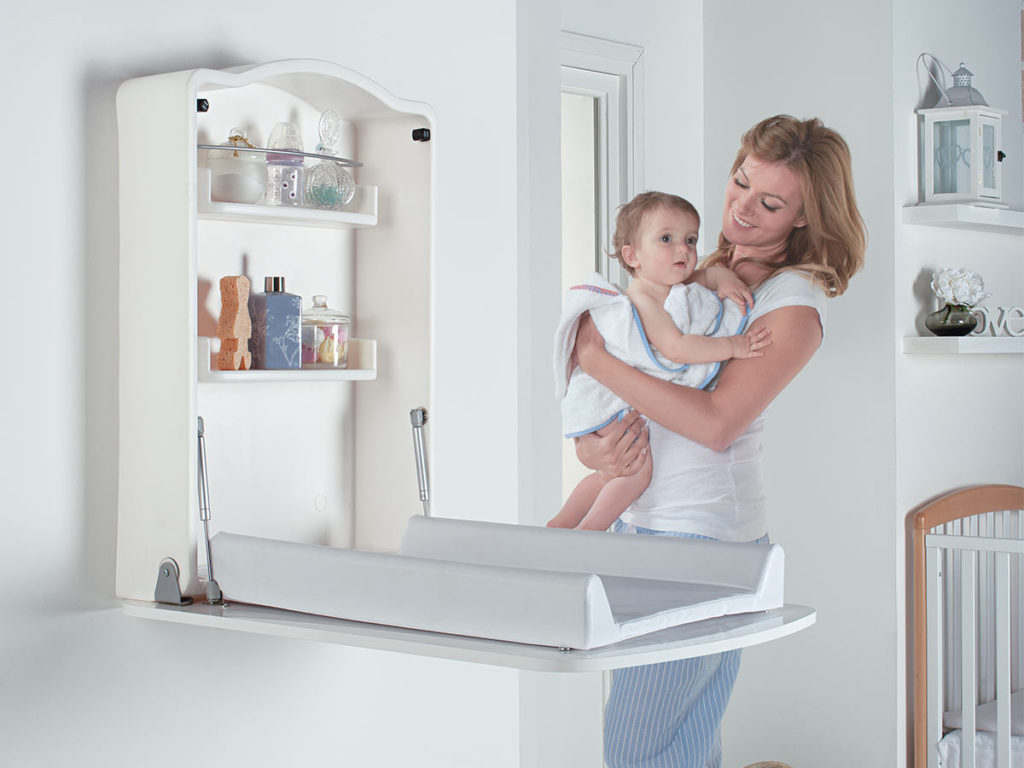
You can find many options in stores, however, this will be an additional very significant cost for the family budget. In addition, after about a year, the table will no longer be needed. Therefore, many are thinking about how to make a changing table for newborns with their own hands. To do this, you first need to determine what exactly you need it for.
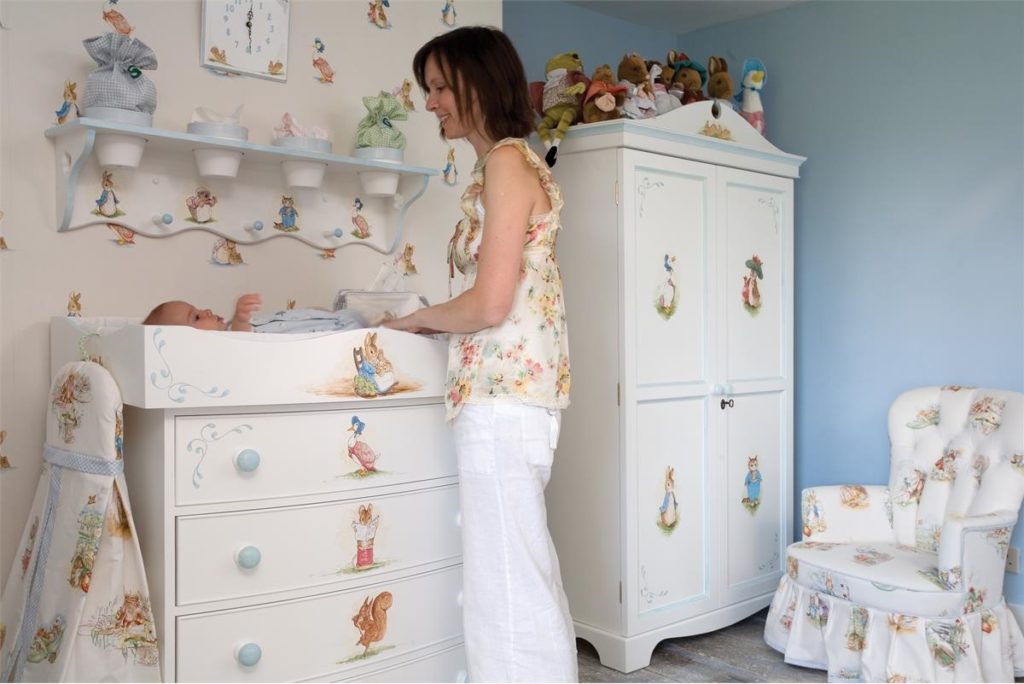
- What is a changing table for?
- Varieties
- How to choose material for a changing table with your own hands
- Step-by-step instructions for making a changing chest
- Definition with material and construction
- Drawing up and measuring
- Preparation of parts and blanks
- Step-by-step description of the manufacturing process
- Final finishing and decoration
- Examples of ready-made tables
- Video: do-it-yourself portable changing table
- Changing table options in the photo
What is a changing table for?
Despite the short period of operation, this is a very necessary item. A woman during motherhood experiences a great stress, and standing in an uncomfortable position in front of a bed or an armchair during swaddling is very uncomfortable and, moreover, is also harmful for the already tired back muscles.
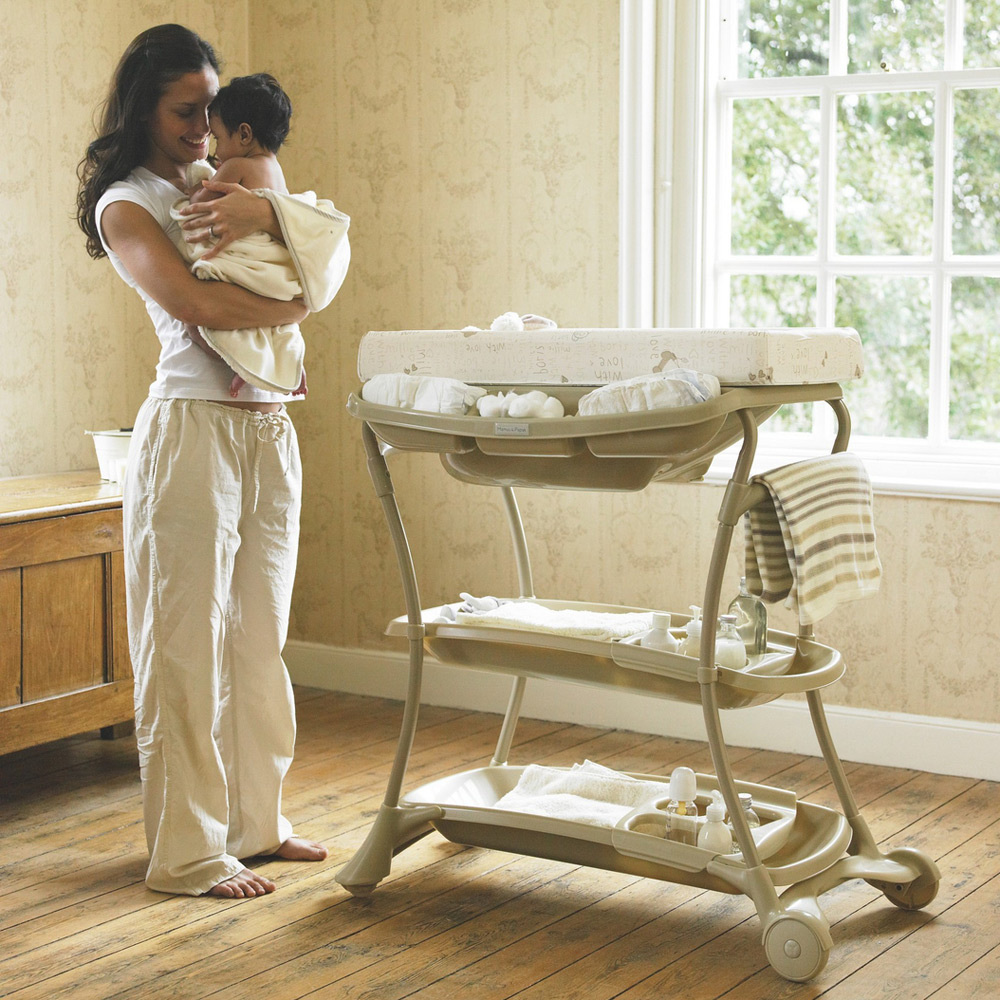
Now the views on the need for swaddling are divided. Many modern mothers believe that these are relics of the past and refuse this procedure from the very moment of birth. However, the majority still hold the opinion that this procedure allows the baby to get used to the new environment, since being in a tight, but warm and cozy diaper, he feels like he once was in his tummy.
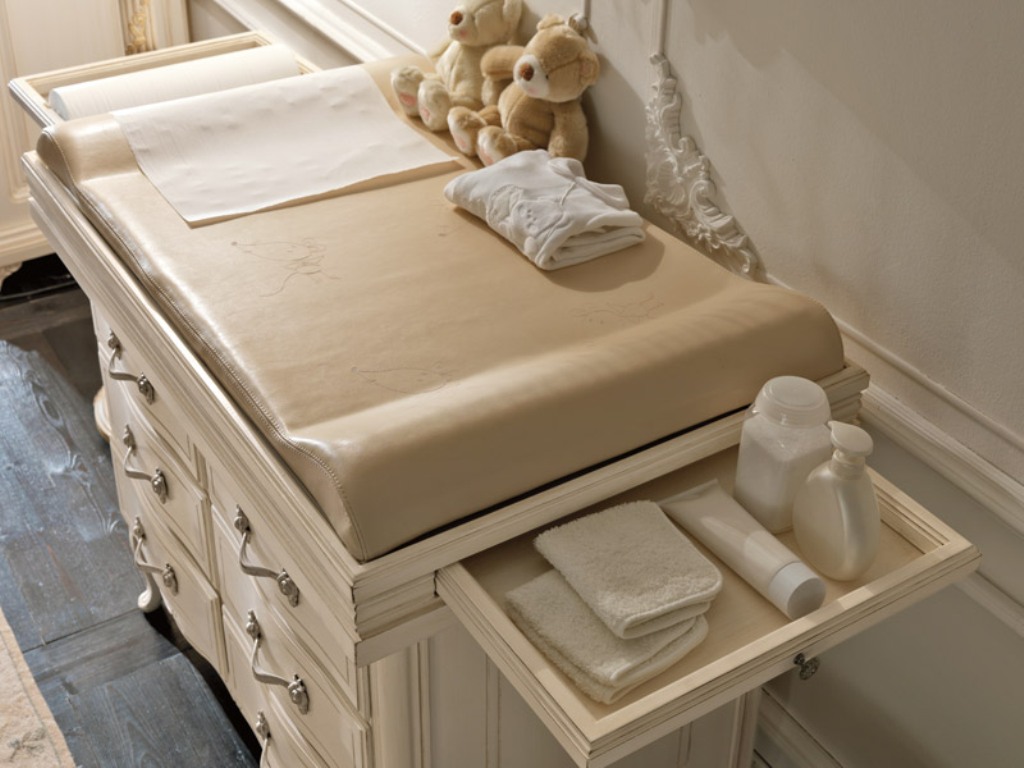
Each mother decides for herself how to take care of her child, but we draw your attention to the fact that in addition to changing diapers on this table, you can change diapers, change clothes, treat with powder or cream, clean the nose, as well as give the baby a massage and therapeutic exercises.
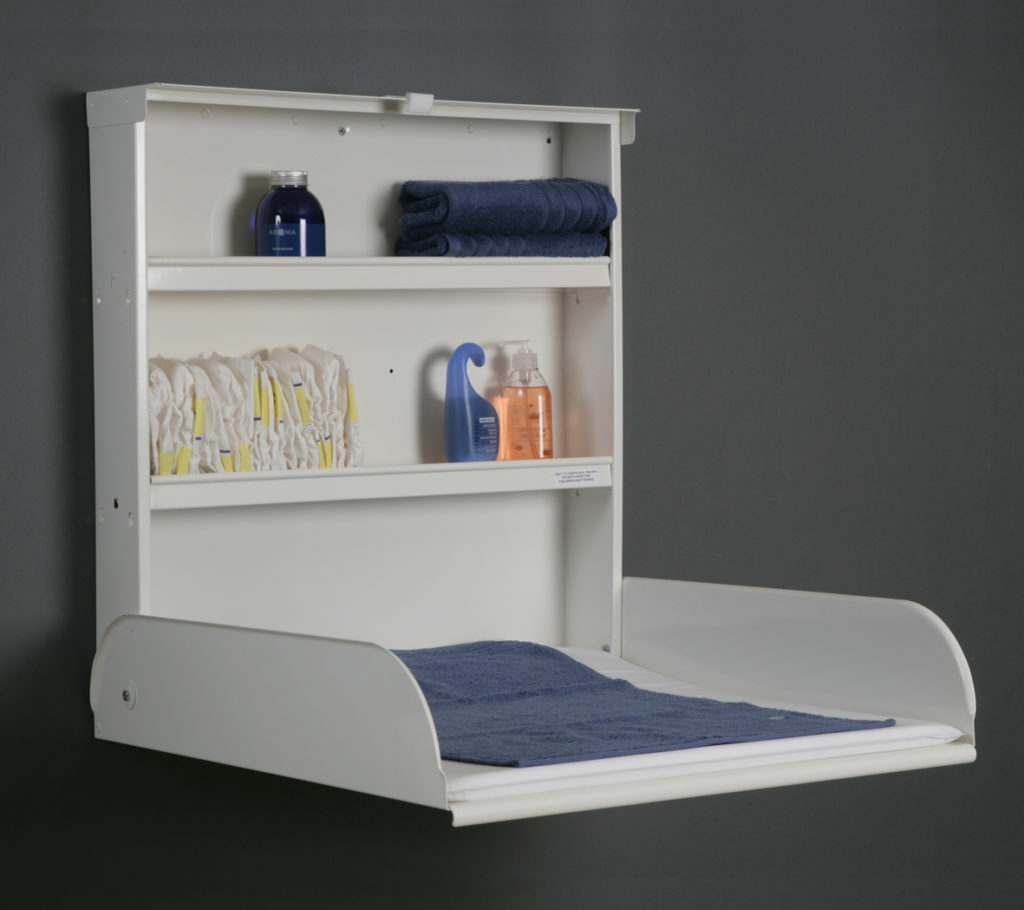
Some models are made in such a way that they can store various children's accessories and clothes, becoming a replacement, for example, a chest of drawers.
Varieties
Changing tables can be radically different from each other in terms of size, functionality, placement in the room. All these differences come down to 4 types of design. Let's consider them in more detail.
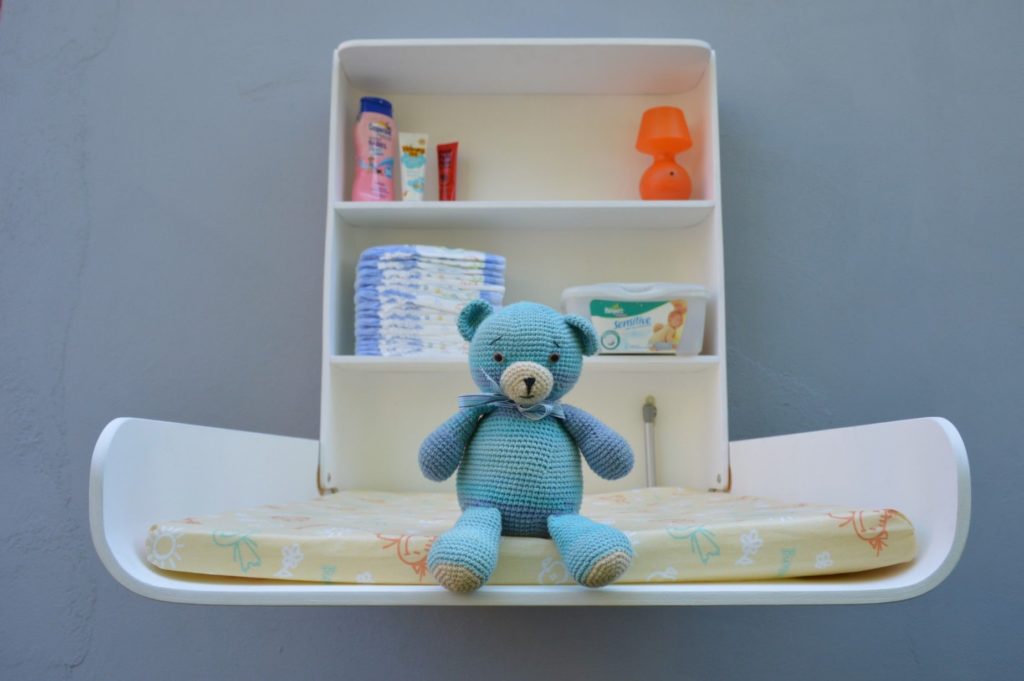
Suspension
This is a stationary type of product that looks like a shelf attached directly to the wall. When the need for it is no longer necessary, it is simply removed, but it can also be used to store children's things. The hanging type is easy to use and does not take up much space.
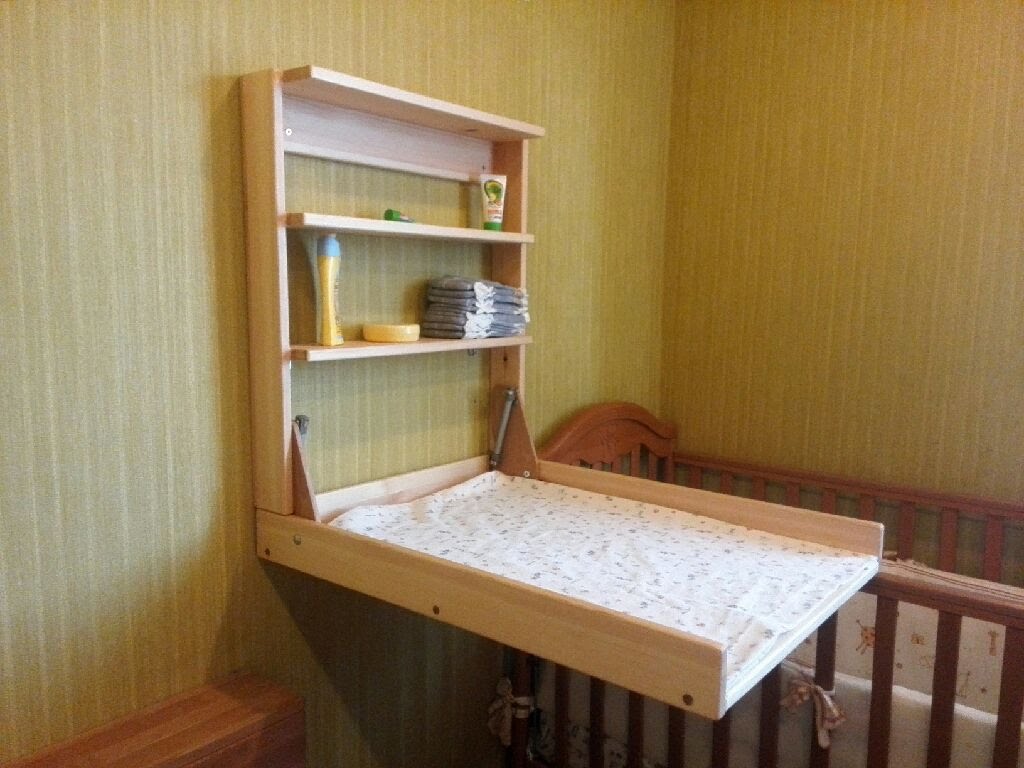
Important! The wall must be load-bearing, since a simple interior partition is not able to withstand the load
Folding
The folding model is also attached to the wall, and when unfolded looks like the previous version, the difference is that it can be folded, fully pressing it against the wall, which will save space in the room.
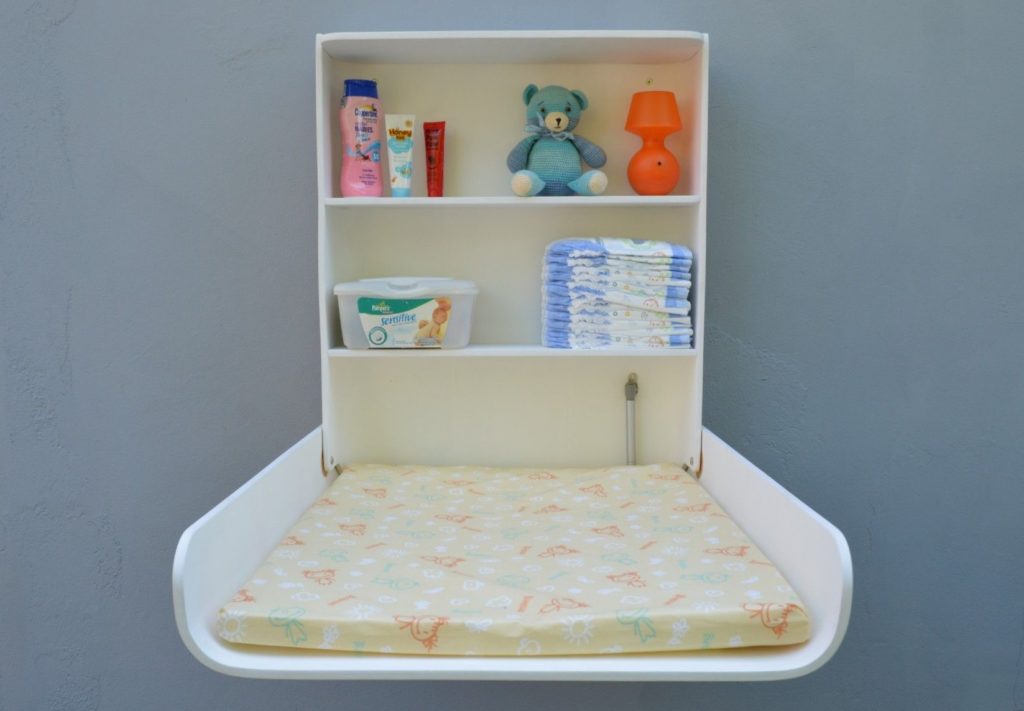
There are usually small shelves underneath for storing a small amount of changing accessories.
Portable
The portable changing table looks like a regular ironing board, only it is equipped with a cover made of waterproof material and bumpers along the edges that protect the baby from falling.
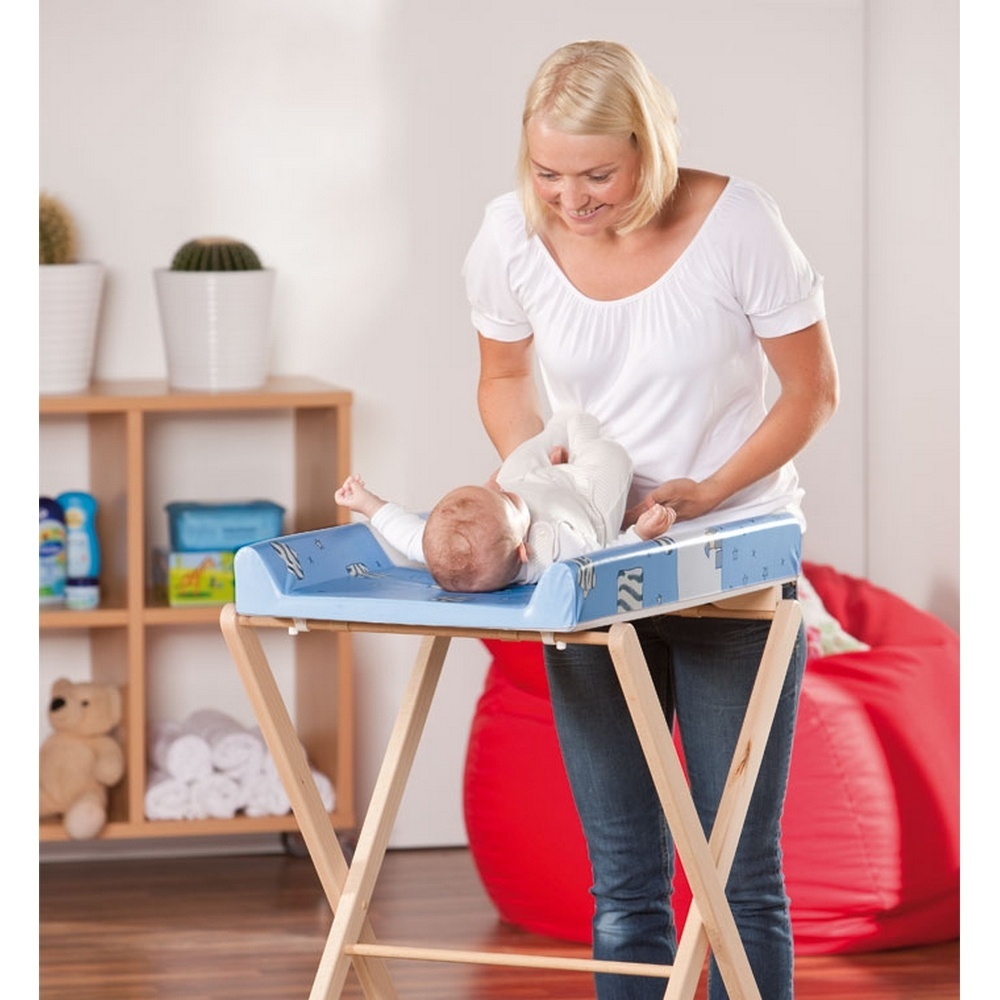
On the right, there is usually a small container, for example, for diapers or diapers, and under the table itself there is a small shelf for clothes. The main advantages are that it is mobile, since it can be carried from room to room and saves space, since it can be folded and put in a free corner until next use.
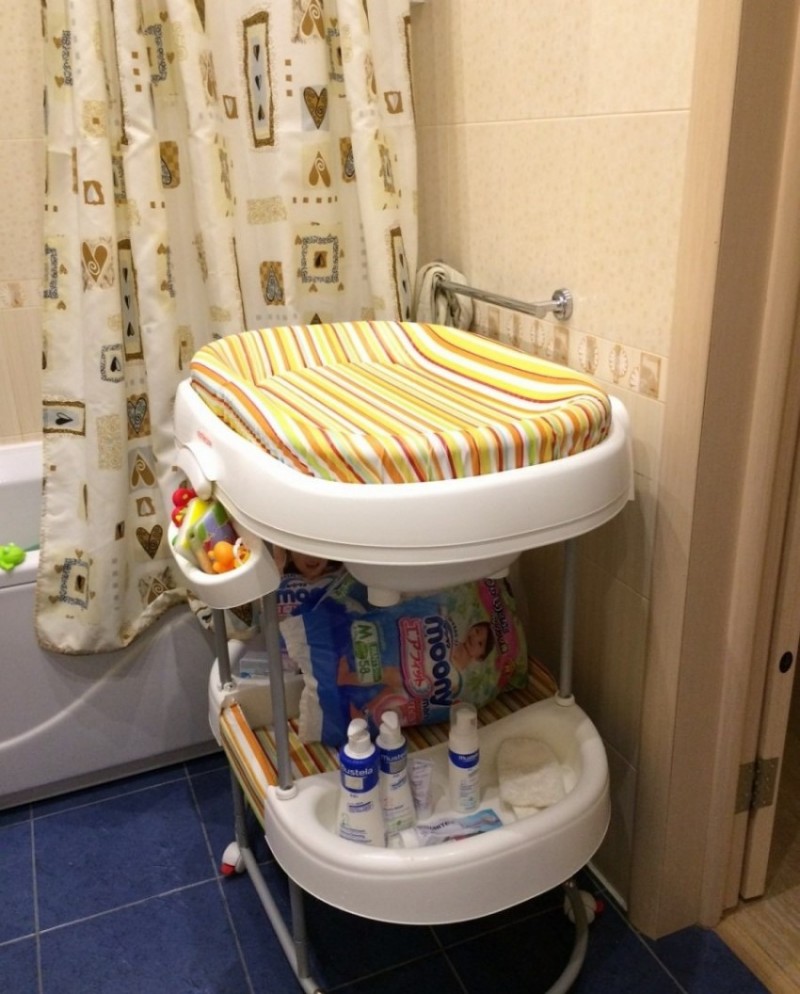
Dresser
This model is a regular chest of drawers with drawers, on top of which there is a changing area. This is the most standard type of construction with additional functionality.

Basically, in all models, the changing board, when it is no longer needed, is removed, and just an ordinary children's chest of drawers remains. The disadvantage of the model is that the changing chest of drawers is large enough and takes up more space than the previous ones.
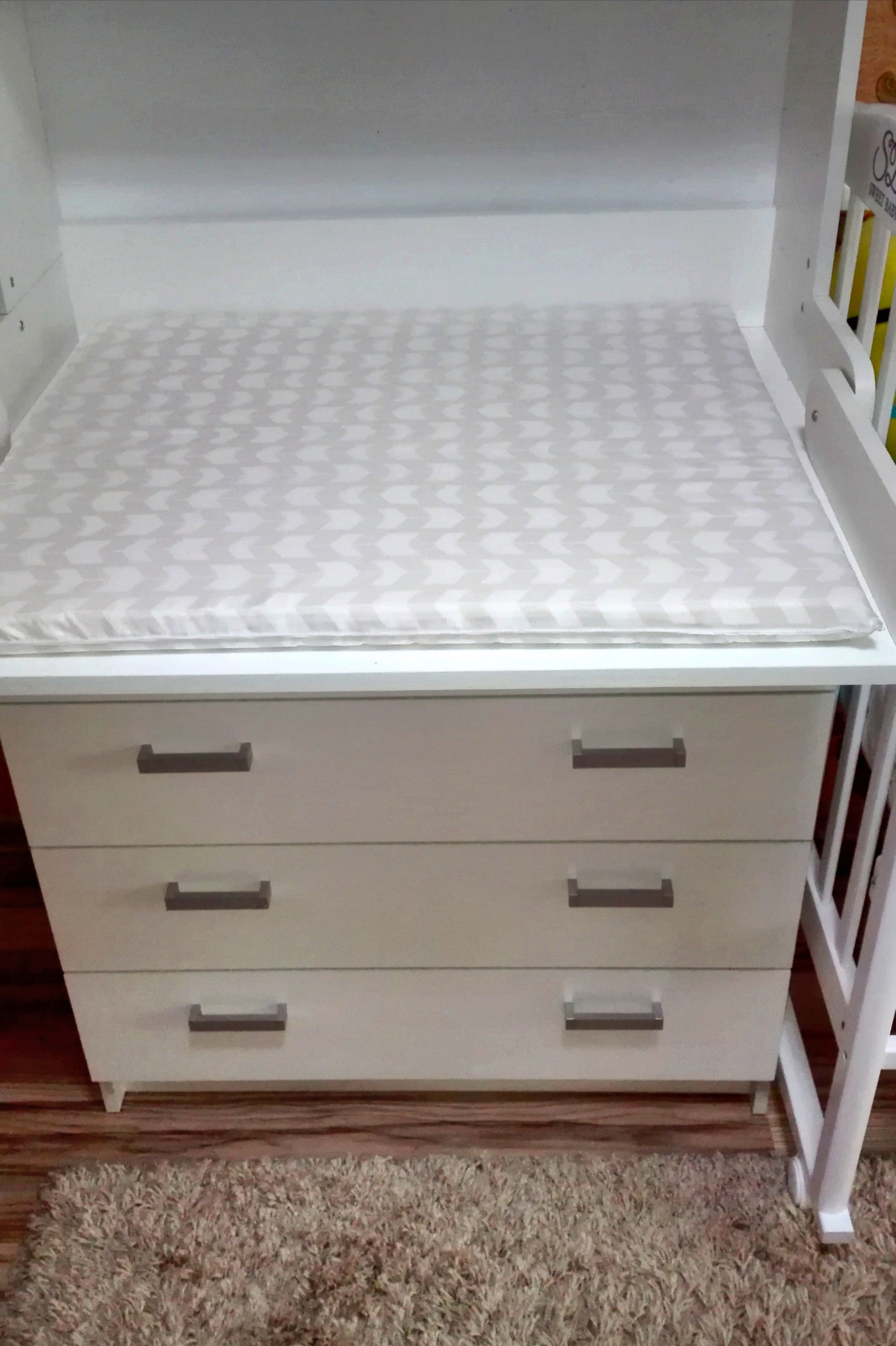
However, if the size of the room allows, this model is the most optimal both for use and for creating the interior of a nursery.
How to choose material for a changing table with your own hands
All materials that you will use to make a changing table should be as environmentally friendly as possible. Most often, natural wood is used for a table in the form of a chest of drawers, in addition to it, laminated types of chipboard or MDF with E1 marking are also used.
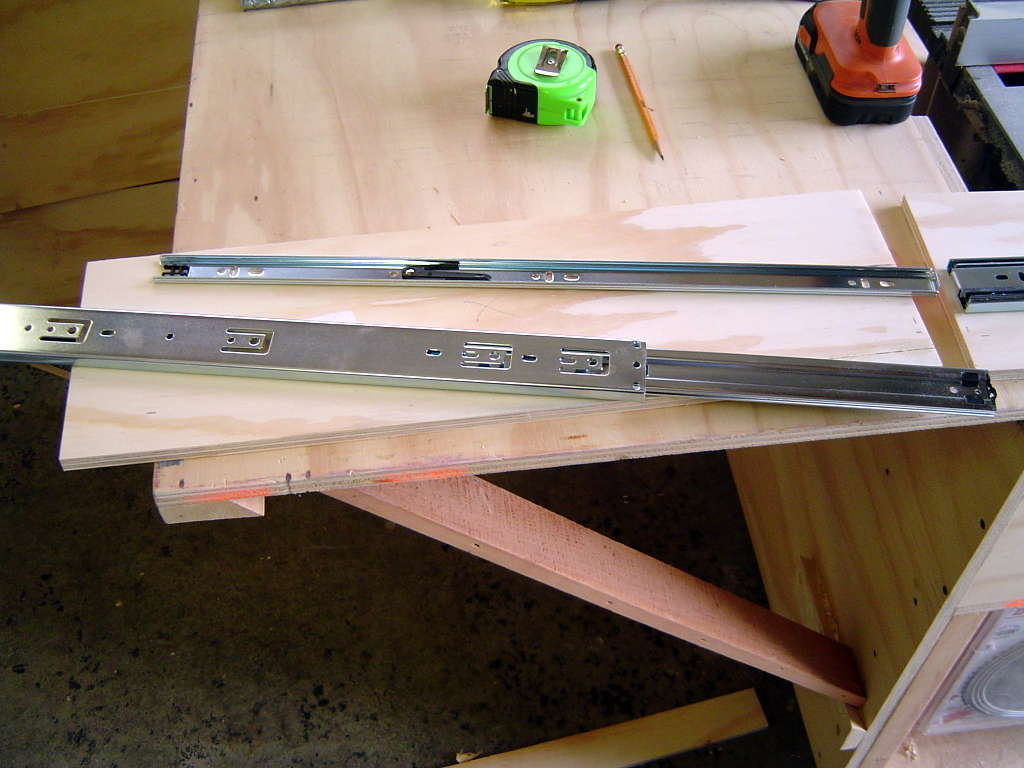
In addition to the main material, do not forget about additional tools such as glue that does not contain toxic substances, certified paints and varnishes, waterproof natural fabrics and high-quality filler.
Step-by-step instructions for making a changing chest
If you decide that a changing table is needed for caring for a child, but buying it is costly and unprofitable, and you do not know how to make a changing table yourself, then the instructions and features of assembling the changing table with your own hands, which we will talk about below, will help you easily make exactly the model you need.

Definition with material and construction
As we have already said, the materials from which the product will be made must be absolutely harmless to the newborn. Therefore, it is most correct to choose natural wood, this is the most durable and safest material, however, its cost is quite high.

The design also depends on your needs and placement possibilities. If the living space does not allow, of course, it is better to stay on a hanging or folding version, but if you want the most convenient and comfortable changing table with a storage system, choose a chest of drawers.
Drawing up and measuring
Before starting production, it is imperative to prepare a drawing; you can make it both independently with some experience, or choose a suitable one on various specialized Internet resources.
There are also software products that allow you to simulate a future piece of furniture, as well as calculate the required amount of material, for example, PRO100, Basis-Furniture and others. Of course, when creating a diagram, it is necessary to represent the size of the product.
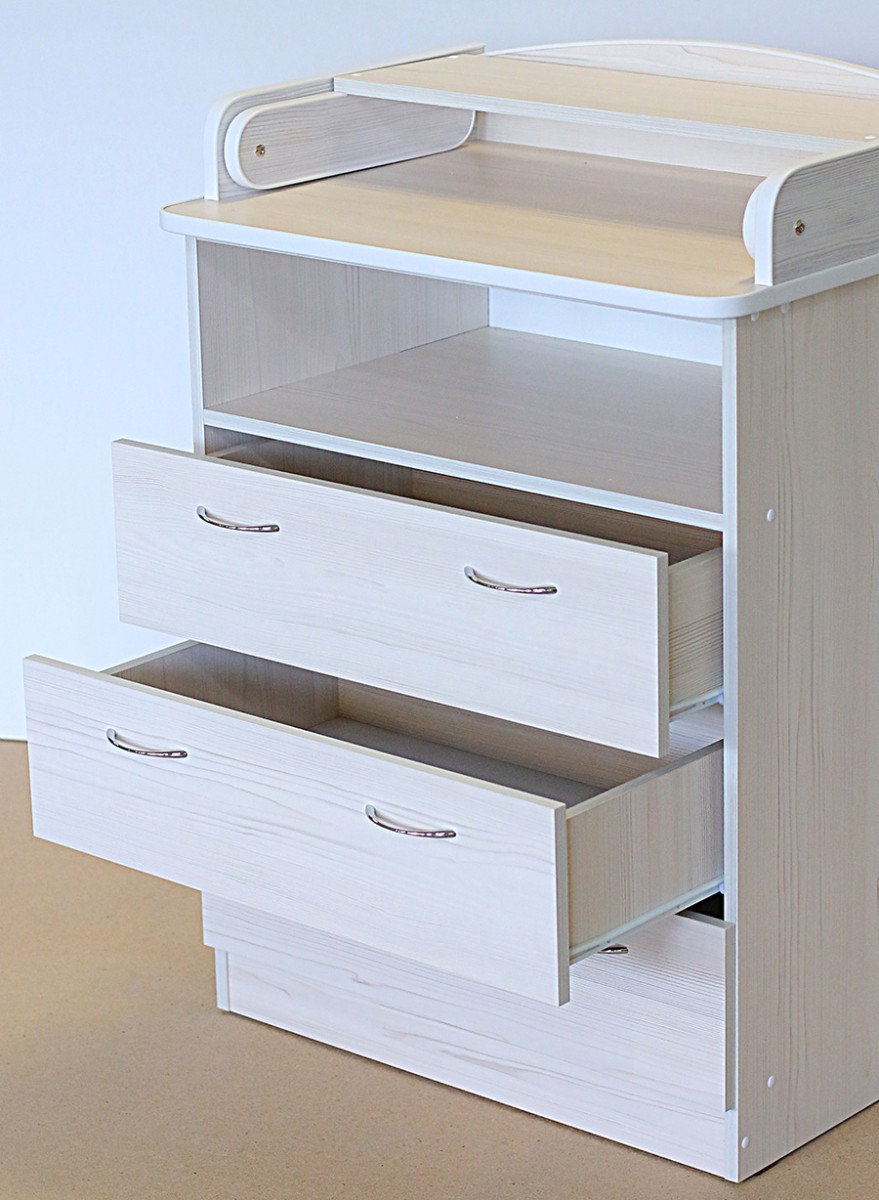
So, the standard for the size of the changing table for newborns is:
- in height - within 80-110 cm,
- in depth - at least 70 cm (optimally 90-100 cm), taking into account the characteristics of the child's growth,
- in width - any, but the range of 80-100 cm is more convenient than the others.
Preparation of parts and blanks
Saw out the details of the future table in accordance with the drawing. A prerequisite for a changing table is rounded corners and edges, so a jigsaw is needed for this purpose.
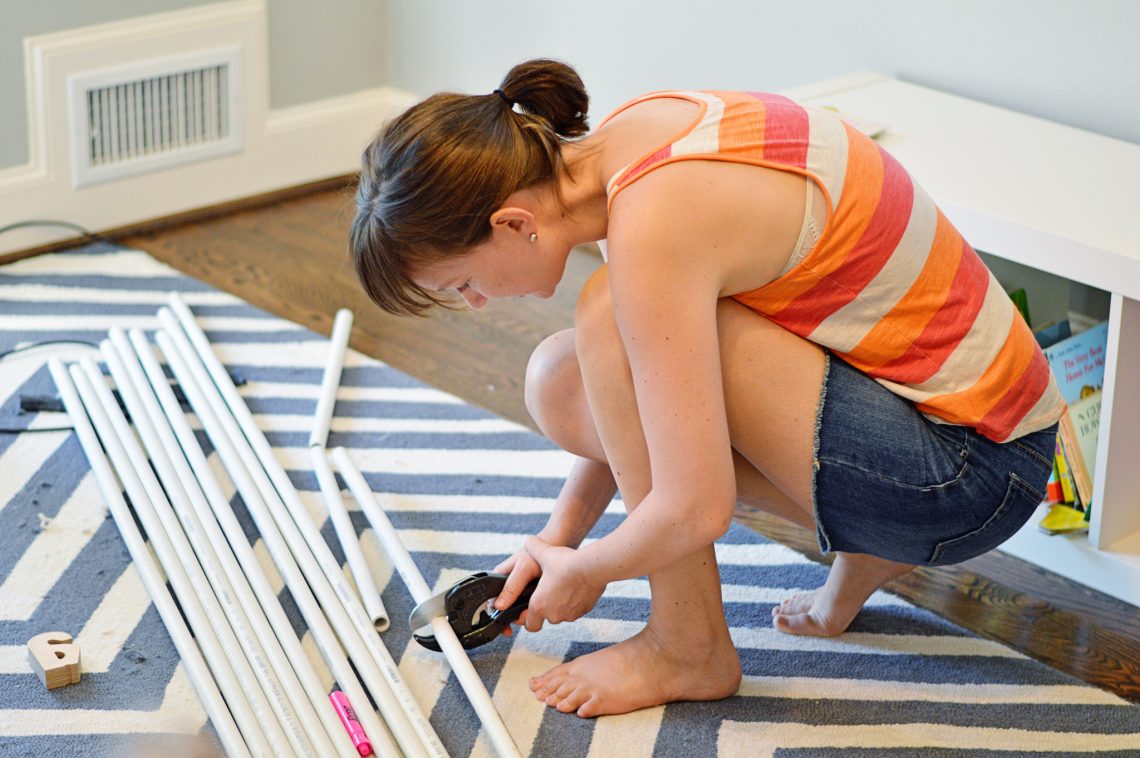
It is also necessary to treat the surfaces with an antiseptic composition. Additionally, the edges can be pasted over with edge adhesive tape. After that, mark the finished parts with a pencil for the necessary holes and fasteners. Drill the indicated holes.
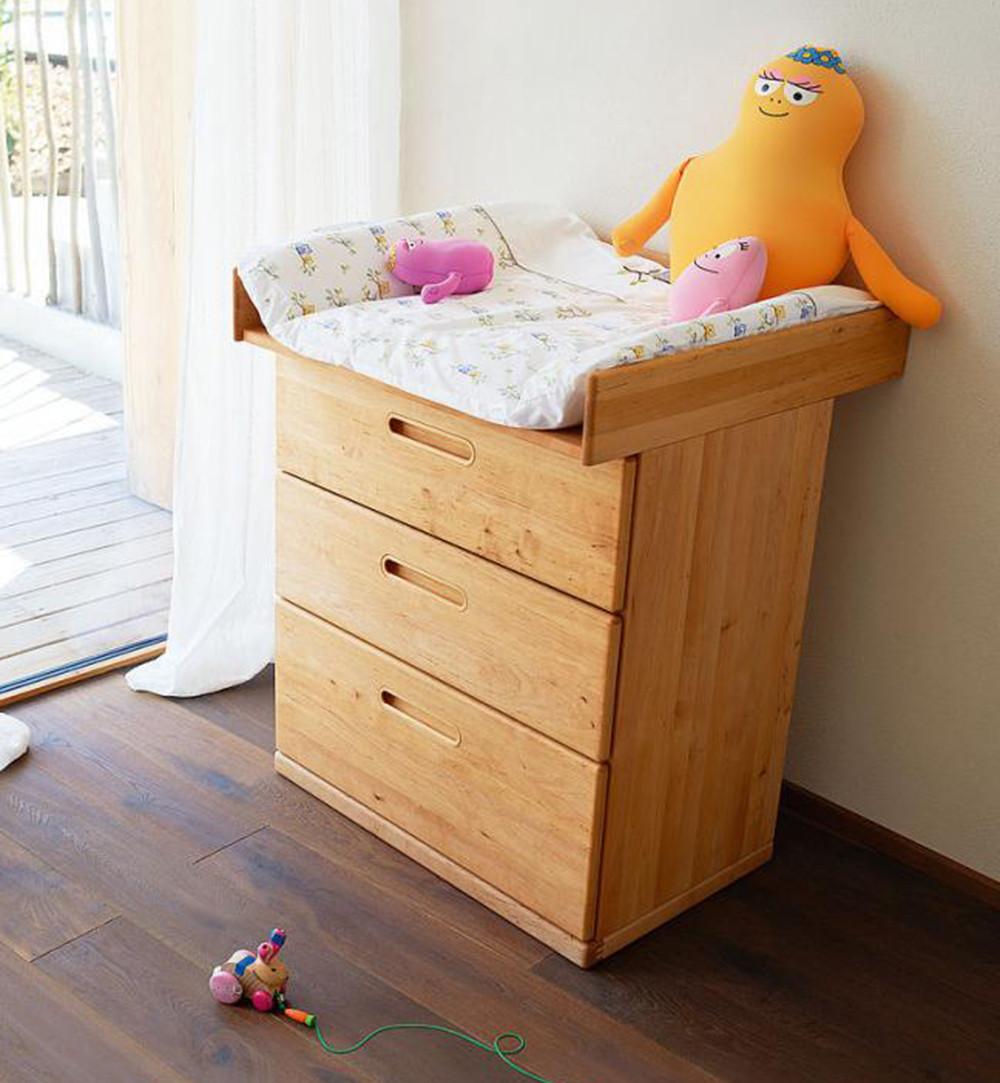
Important! It is necessary to strictly observe all the dimensions required on the sidewalls, the holes must be mirrored and completely coincide. Deviations exceeding 1 mm must not be allowed.
Step-by-step description of the manufacturing process
- Using the prepared fasteners, we fasten all the details of the table. After that, you can seal all the joints with wood putty. After it dries, all surfaces must be sanded. Next, you need to paint the table.
- When the paint is dry, use glue to attach a soft material such as foam to the sides.
- Legs are required to stabilize the table. Better to use height-adjustable feet or regular rubber feet.
Important! To give the table strength and rigidity, the back wall must be made slightly higher than the side ones.

Last but not least, various fittings are attached and a mattress is placed. The caps of the self-tapping screws can be covered with decorative caps.
Final finishing and decoration
After we managed to assemble the structure, we move on to an equally important stage - finishing and decorating the table. Here, you can connect your imagination and fantasy.
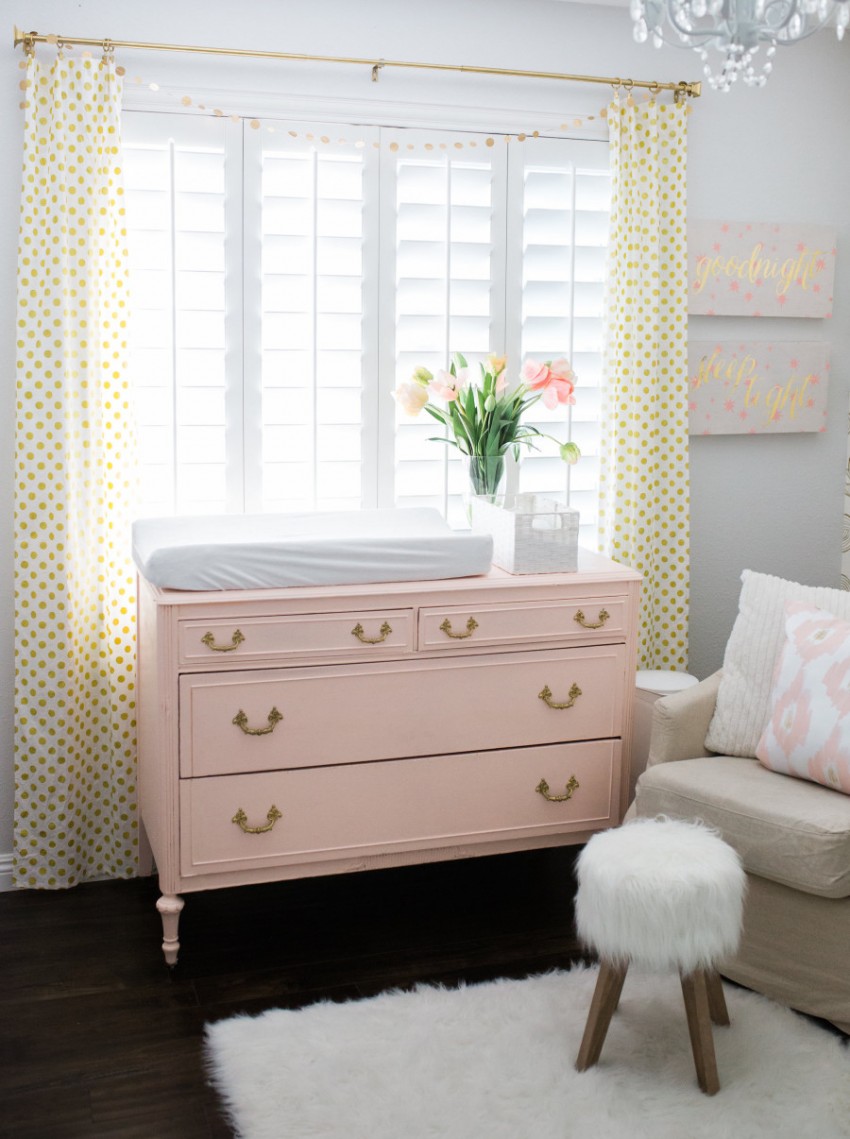
If the child has his own nursery, you can make the decor so that it is combined with the general idea of the room and harmoniously fits into the interior. The easiest option is to cover the product with varnish or paint. You can also decorate it with images such as cartoon characters, flowers or animals.
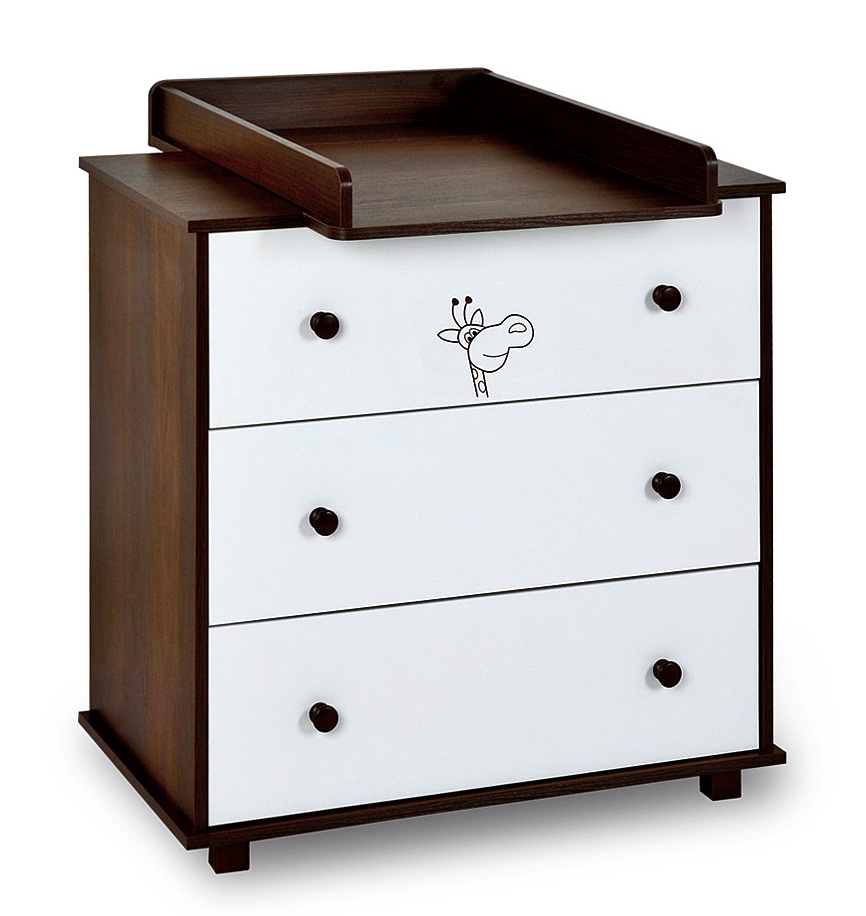
- For a newborn baby, pale pink, powdery tones can be used;
- For a boy - light blue, green shades;
- The design standard that is suitable for children of any gender is white, gray, beige.
Examples of ready-made tables
Today, furniture stores provide a wide range of ready-made changing tables, so we recommend not to rush to spontaneously tinker your own product, but to familiarize yourself with all existing types and specific models presented on the sites on the Internet.
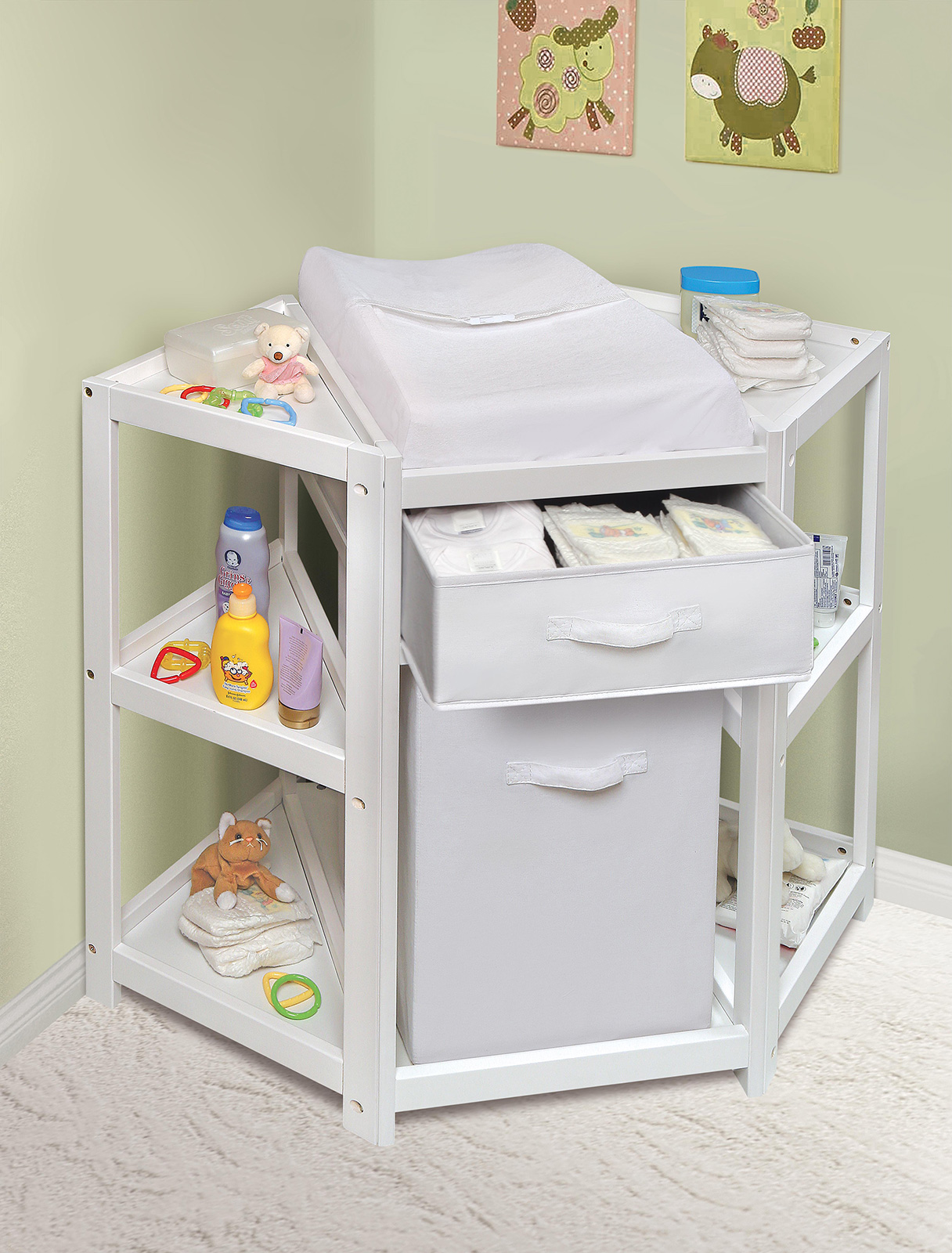
Thus, making a changing table with your own hands is not difficult, you just have to carefully understand the manufacturing features. This will save the family budget and take into account all the requirements for the product.
And most importantly, you will be sure of the quality and safety of furniture for your baby. In addition, a hand-made piece of furniture will have a special value for your family, create coziness and a special atmosphere of love and warmth.
Video: do-it-yourself portable changing table
